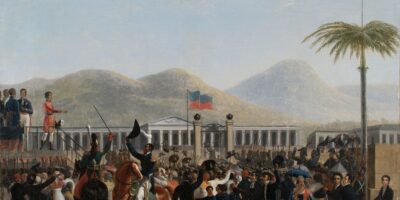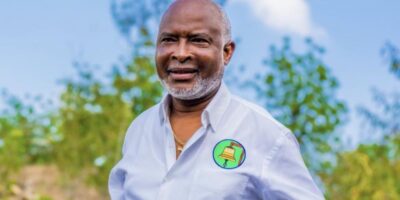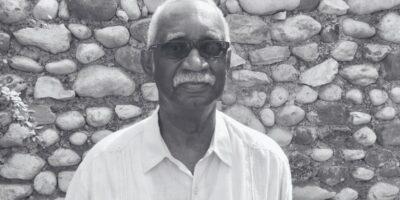Many view the Trump administration’s policies as inconsistent, but a closer look reveals something far more deliberate—a systematic strategy that disguises cruelty as reasonable governance
On June 24, the U.S. Embassy in Haiti issued a stark security alert advising American citizens not to travel to Haiti and urging those already in the country to leave immediately. The warning was so severe that U.S. government personnel were prohibited from taking commercial flights due to « potential risks to air traffic. »
Yet two days later, the Department of Homeland Security announced the complete termination of Temporary Protected Status for Haiti, claiming that « the environmental situation in Haiti has improved enough that it is safe for Haitian citizens to return home. »
This decision affects over 500,000 Haitians who had been protected under the program.
Many view the Trump administration’s policies as inconsistent, but a closer look reveals something far more deliberate—a systematic strategy that disguises cruelty as reasonable governance.
The termination of Temporary Protected Status (TPS) for Haitians is not isolated. It is part of a broader effort to erase Black and brown people from the American story.
This quiet purge is not limited to Haiti and is unfolding on multiple fronts. It is the removal of National Park Service pages about Harriet Tubman and the Underground Railroad, the deletion of Jackie Robinson’s military service history during the Pentagon’s DEI ( Diversity, Equity, and Inclusion) purge, and the renaming of Navy ships that honor civil rights leaders like Thurgood Marshall and Medgar Evers.
These are not random acts. They are carefully coordinated steps in a larger plan to redefine who gets to belong in America.
We’ve Seen This Playbook Before.
This strategy follows a well-worn American playbook. The Chinese Exclusion Act of 1882 began by targeting laborers, then expanded to exclude virtually all Chinese immigration for six decades. Japanese internment imprisoned 120,000 people—most of them American citizens—based solely on ancestry. The Mexican Repatriation of the 1930s forcibly removed over one million people, including 600,000 U.S. citizens. Each episode began with the most vulnerable and expanded from there. Each was justified with claims of necessity or safety. And each established precedents that went far beyond their original scope.
For Haitians, this pattern is particularly familiar. The 1915-1934 U.S. occupation of Haiti resulted in 15,000 Haitian deaths. The « boat people » policies of the 1980s-90s showed this targeting continues: while Cubans fleeing communism were welcomed, Haitians fleeing dictatorship were intercepted at sea and returned to face persecution.
The Dominican Republic offers the most chilling contemporary example. In 2013, ruling TC-168-13 retroactively stripped citizenship from anyone born between 1929 and 2010 whose parents were undocumented immigrants, rendering over 200,000 people stateless overnight. Ten years later, as many as 130,000 Dominicans remain stateless, creating an exploitable underclass that benefits elites while keeping workers in constant fear.
This is why the US Supreme Court’s recent ruling on birthright citizenship signals what’s coming. Constitutional interpretation can be weaponized to retroactively erase citizenship and human dignity.
Pride Without Power.
As Haitian-Americans, we wear our flags with pride, invoke our revolutionary histories, and pack cultural festivals. But we seldom show up when marches, policy battles, or sustained civic engagement demand our presence. When Immigration and Customs Enforcement (ICE) raids our neighborhoods, those same crowds disappear.
I have written extensively about engagement strategies for building stronger communities, but none of that matters without collective consciousness. We cannot build power from individual survival mode.
I often find myself at odds with fellow Haitians who focus solely on neocolonialism as the central thesis of our problem. I share their understanding of the international community’s damaging role in Haiti’s crisis. I’ve read Kwame Nkrumah’s The Last Stage of Imperialism multiple times, and his breakdown of imperial tactics remains relevant. But my disagreement is not with their diagnosis,
it’s with the paralysis that follows. Nkrumah’s book was published in 1965. Sixty years later, Africans and the broader diaspora cannot afford to keep repeating the same critiques without evolving our strategy. We must move from analysis to action—smart, coordinated, and unapologetically bold.
Where Is Our Leadership?
In 2021, I wrote about how Haitian-American leaders need to step up but also step in, calling for coordinated leadership at this critical moment. Four years later, as Temporary Protected Status (TPS) is terminated and our community faces its gravest threat in decades, nothing has fundamentally changed. Other organizations have tried to fill the leadership void, but were unsuccessful in creating the unified response we desperately need.
The National Haitian American Elected Officials Network (NHAEON) is the only organization positioned to play the true convening role our community requires. With elected officials at every level of government—from city councils to Congress—NHAEON has (or should have) the political infrastructure and credibility to coordinate a comprehensive response.
But leadership requires more than position; it demands action. The moment for polite advocacy has passed. We need NHAEON to step into its role as the central coordinating force for Haitian-American political power.
The road ahead no longer allows for neutrality. Even for our own survival, we must engage fully and intentionally. So, we must ask ourselves some fundamental questions.
Do you really understand what’s at stake? This is not just about immigration, it’s about belonging, race, and power. Legal status does not equal safety. Citizenship does not guarantee protection from masked men passing as official ICE officers. Consciousness is the foundation of resistance.
What are you willing to sacrifice? Change is never convenient. We may need to forgo comfort, donate when it’s difficult, or spend evenings in strategy meetings instead of social events. Freedom is not free.
What has your pride done for our people, and are you willing to use your resources to save yourself?
It’s time to turn cultural celebration into political power. With $4.5 billion in annual remittances, we have significant economic leverage. Research and support organizations working for immigrant rights and justice with your money, time, and voice. Contact representatives. Show up to city council meetings where your voice has an immediate impact. Support immigrant-owned businesses. Invest in productive capacity rather than just consumption. Use our collective purchasing power to pressure those who harm our interests, starting by disinvesting in the Dominican Republic and its Haitian allies.
The Flames Are Coming.
Today, they are coming for Haitian TPS holders. Tomorrow, it could be green card holders, naturalized citizens, or even their American-born children. When vulnerable people are targeted, it’s often a test. If no one resists, the attacks grow bolder and more widespread.
As I have written about finding redemption through forgiveness, we can no longer afford the dangerous mindset that « Port-au-Prince is not Haiti »—the same selective blindness that allows us to think TPS holders are not us, or that what happens to the most vulnerable won’t eventually reach our doors. Just as gangs expanded from Cité Soleil to Grand Ravine to Village de Dieu, targeting expands from the most vulnerable immigrants to those with more protection, until no one is left to speak out.
My love for my adopted home does not blind me to the fact that white nationalism is deeply woven through its tapestry. I am grateful for the life I have built here, and I still believe in the promise of the American dream. But I am not naïve, and you should not be either. The pattern of scapegoating and exclusion is not an exception—it is a feature.
There is a Haitian proverb: « Lè bab kamarad ou pran dife, fò ou mete pa ou a nan dlo »—when your neighbor’s beard is on fire, you must wet yours. The fire is no longer a distant threat. It has reached our street, and as we wait, it will reach our doors. We do not have the luxury of waiting. The time to act is now.
By :Johnny Celestin
Cover | Haitians demonstrating in Times Square in response to recent comments made by President Trump that appeared to denigrate both Haiti and African nations during a meeting on immigration. Source : Axios
► AyiboPost is dedicated to providing accurate information. If you notice any mistake or error, please inform us at the following address : hey@ayibopost.com
Keep in touch with AyiboPost via:
► Our channel Telegram : Click here
►Notre Channel WhatsApp : Click here
►Our Community WhatsApp : Click here







Comments